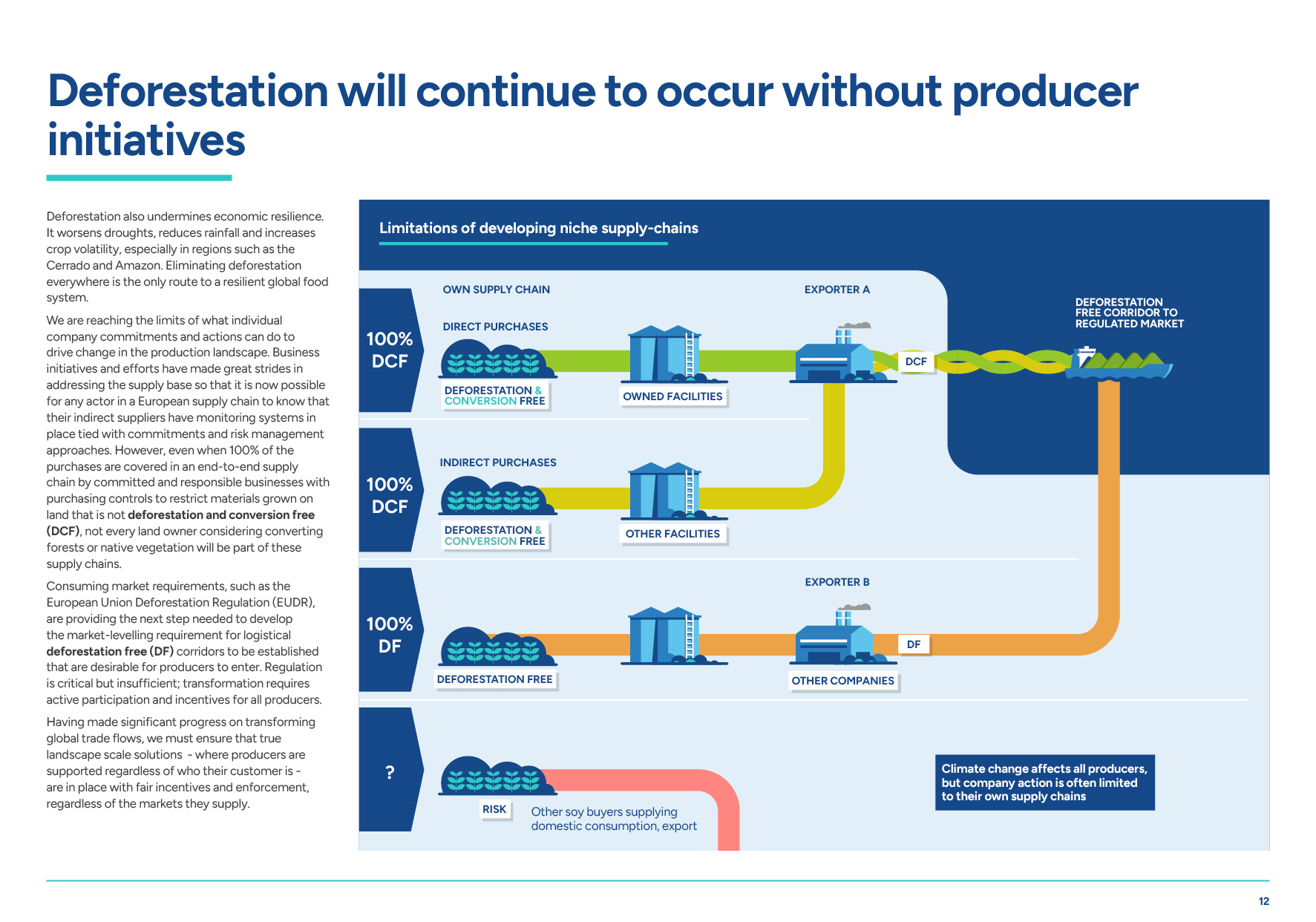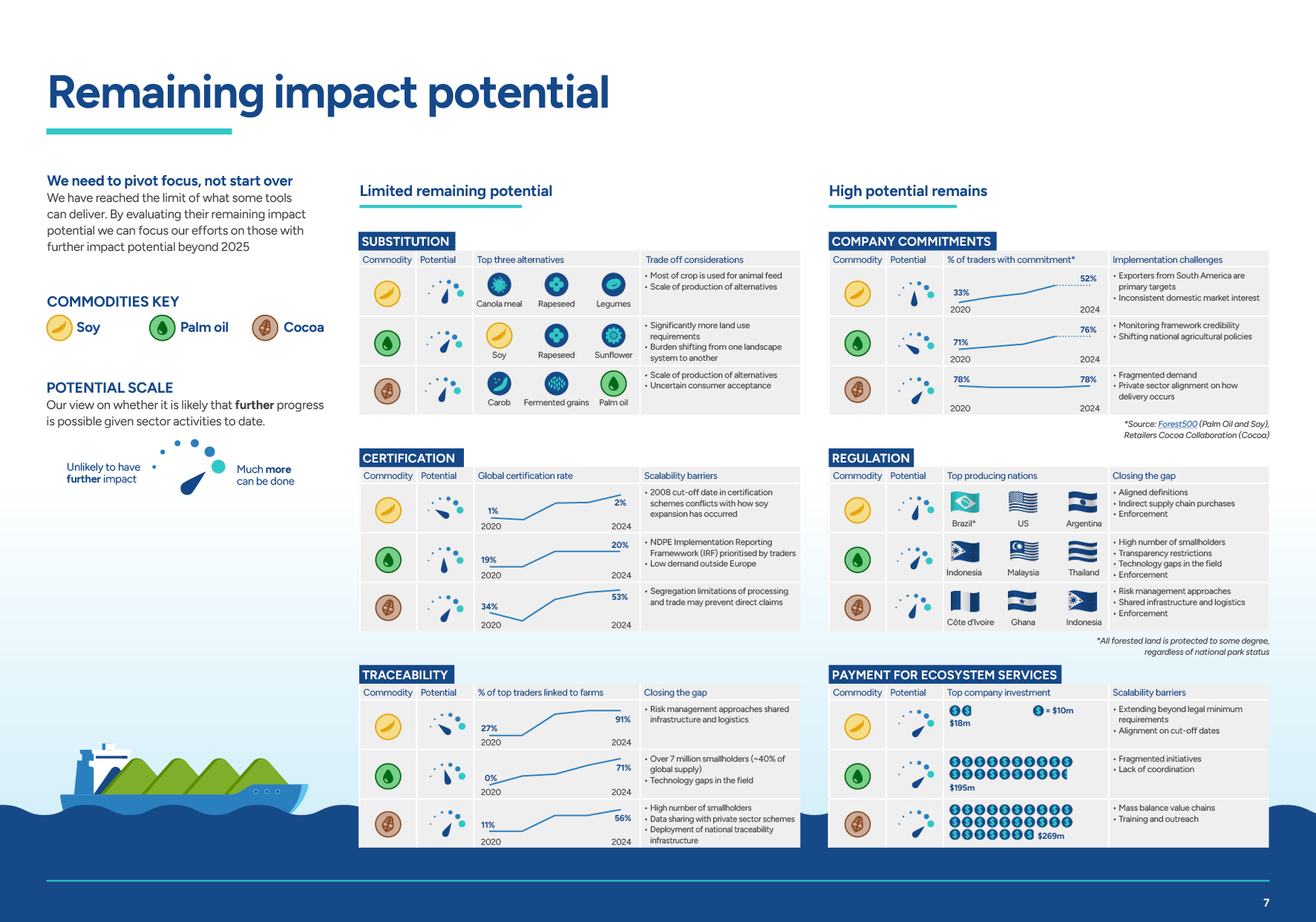New white paper shows limits of voluntary business action to end deforestation
News story
13 November 2025
Over the past two decades, efforts to address deforestation have brought both success and frustration. We now understand the real financial risks linked to ecosystem loss and have overcome many, but not all, of the transparency and traceability barriers that once limited action.
Yet global progress has been uneven, with major commitments delayed or rolled back and the true value of forests still under-recognised.
As European policymakers weigh possible extensions or other changes to the EU Deforestation Regulation (EUDR) in a vote in Brussels today, 13 November, we publish a new white paper that sheds light on more than two decades of private-sector action to halt deforestation – and what needs to happen next.
Business leadership has achieved significant progress
The white paper, The Role of Business in Halting Deforestation, reviews twenty years of initiatives by global companies in palm oil, soy, and cocoa supply chains. It finds that business leadership has achieved significant progress – improving transparency, certification, and monitoring – but that voluntary efforts alone have not been enough to stop forest loss.
With the annual intensity of forest losses continuing to increase, the white paper examines how progress towards ending deforestation has evolved through three main phases, covering the eras of certification (2002-2012), innovation and initiatives (2013-2019), and traceability and monitoring (2020-2025).
Crucially, however, it also evaluates the remaining impact potential of the tools available to halt deforestation. The analysis finds that, while some tools have reached the limit of what they are able to deliver, others – such as payment for ecosystem services and regulation – show a high degree of efficacy and great potential for further impact.
Voluntary efforts alone have not been enough to stop forest loss
“We stand at a crossroads,” said 3Keel Director Will Schreiber. “One path continues to focus on individual supply chains, celebrating isolated victories.
“The other changes the system itself by combining government regulation, market expectations, and financial value for ecosystem services. Our experience tells us that only this latter integrated path can achieve lasting results.”
With 2025 marking a milestone year, the white paper also offers direction for what needs to come next, providing theories of change to inform what needs to happen in 2025 and beyond.
“The private sector has made real advances, but we’ve reached the limits of what companies can achieve in isolation. Ending deforestation requires coordination across the private sector, governments, and financiers. We have to learn from our experiences and move forward urgently.”
Key insights from the white paper include:
- Deforestation is reaching new highs, despite decades of investment in certification and transparency. Tropical forest loss reached 6.7 million hectares in 2024, the highest in two decades.
- Voluntary tools have reached the limits of what they can achieve. Certification and traceability systems are widespread but still cover only a fraction of global production.
- Systemic change depends on shared accountability. Sustainable outcomes will only emerge when regulation, investment, and market incentives are aligned.
While the white paper does not take a position on the EUDR itself, its publication comes as Europe considers whether to delay implementation. The findings provide important context for policymakers and businesses alike: voluntary commitments can prepare the ground, but policy alignment is essential to achieve lasting results.
“Europe’s debate on deforestation is part of a much bigger story,” said Jenni Wilson, Head of Commodity Supply Chains at 3Keel.
“Our research shows what’s worked, what hasn’t, and what must happen next if we want forests to be protected as part of resilient global supply chains. Business has a central role in this story. And the focus should now be on scaling what works, not inventing new solutions.”






